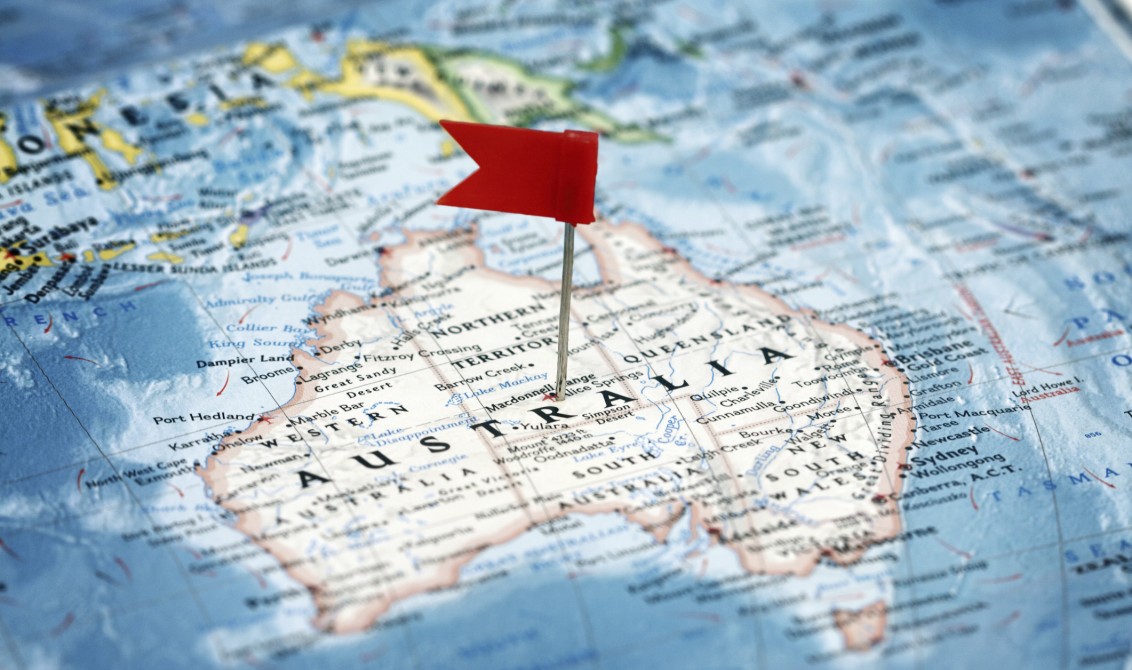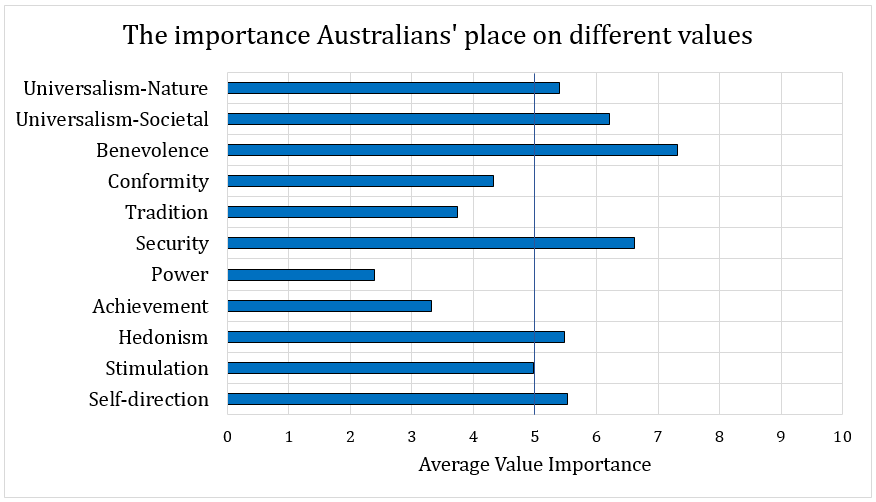The Australian Department of Immigration and Border Protection asks applicants for visas to confirm that they understand that “Australian society values respect for the freedom and dignity of the individual, freedom of religion, commitment to the rule of law, Parliamentary democracy, equality of men and women and a spirit of egalitarianism that embraces mutual respect, tolerance, fair play and compassion for those in need and pursuit of the public good. Australian society values equality of opportunity for individuals, regardless of their race, religion or ethnic background”. While it is important to understand that there is a difference between societal and personal values, it is the average of individual’s values that help us understand what is important to a particular society.

The real question is: What are Australian values? As part of the values project, we collected data from over 7,000 Australian adults between 18 and 75 years of age (THANK YOU FOR YOUR PARTICIPATION!). And, here is what we learnt: WE GENUINELY CARE. But, like most societies, on average, we care more about those close to us, the people we know, rather than distant others, strangers and those we do not know personally. That is to say, the most important value to Australians was BENEVOLENCE, followed by SECURITY and then UNIVERSALISM-SOCIETAL. What do they mean?
- BENEVOLENCE has the goal of enhancing the welfare of the people you are close to, for example, family, friends, co-workers, and neighbours. People who value benevolence would strive to be loyal, dependable, honest, helpful, kind, and forgiving.
- SECURITY has the goal of safety and stability of society, relationships and self. Individuals who value security deem social order, national security, and their family’s (and own personal) security to be very important.
- UNIVERSALISM-SOCIETAL has the goal of understanding, appreciation, tolerance and protection for the welfare of all people, including strangers and those we don’t know. People who value universalism (societal) attach great importance to equality, social justice, tolerance, wisdom and peace in the world.
What are the least important values to Australians? The values ranked as much less important were POWER, ACHIEVEMENT and TRADITION.
- POWER has the goal of attaining social status, and control or dominance over people and resources. Those who value power consider it important to have authority and control over others, wealth, and high status.
- ACHIEVEMENT has the goal of personal success and demonstrating one’s competence according to social standards. Individuals who value achievement place importance on being ambitious, influential, and successful.
- TRADITION has the goal of showing respect, commitment and acceptance of the customs and ideas of traditional culture or religion. People who value tradition consider it important to follow traditional ways of thinking and behaving, and being devout and modest.
Do the Australian values proposed by the government reflect what Australians actually value most?
The official Australian values suggest that we as a society should value universalism-societal, which includes concepts of “freedom”, “equality” and “tolerance”, and conformity including “commitment to the rule of law”. Our study shows that, Australians place a high importance on the welfare of others, especially those who are relatively close (benevolence) and to a lesser somewhat extent those who are more distant (universalism); however, conformity is far less important for Australians. Of course, this is on average (see table below).

We need to ask ourselves: what values do the visitors to Australia see in our population?
It is likely that the Australians visitors meet during their stay in Australia will be kind to each other and security-conscious. While Australians may show a commitment to following the law, our research shows that it is not the most important value.
Stay tuned to the Values Project site for more insights from the values research!

Not to deny the importance of resilience, democracy and shorts, but surely there are other more quintessentially Australian values that must be considered as part of any effort to codify or legislate our national values?
umm what is the least important australia’s values